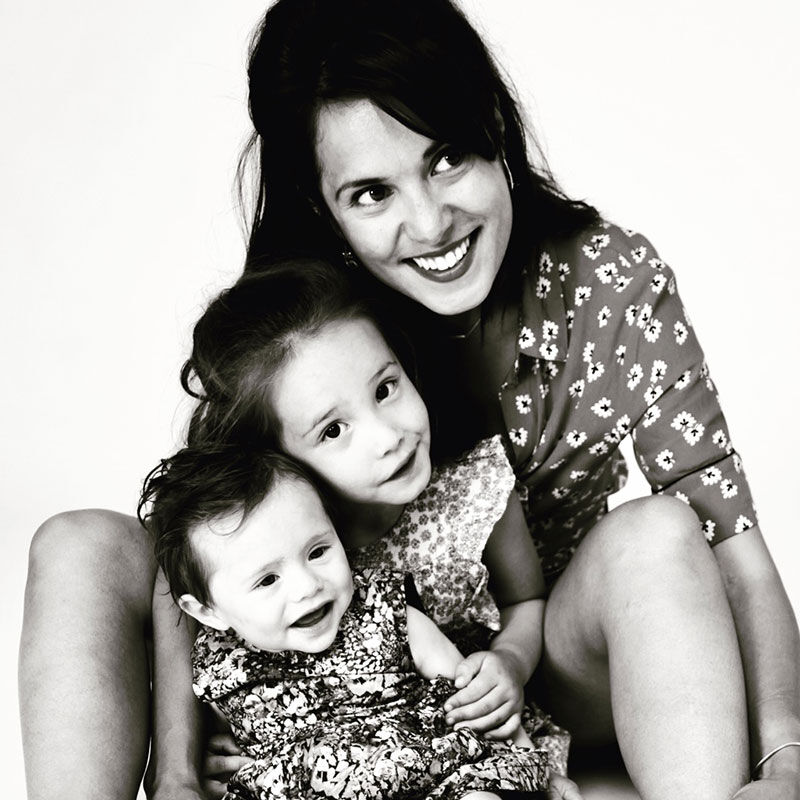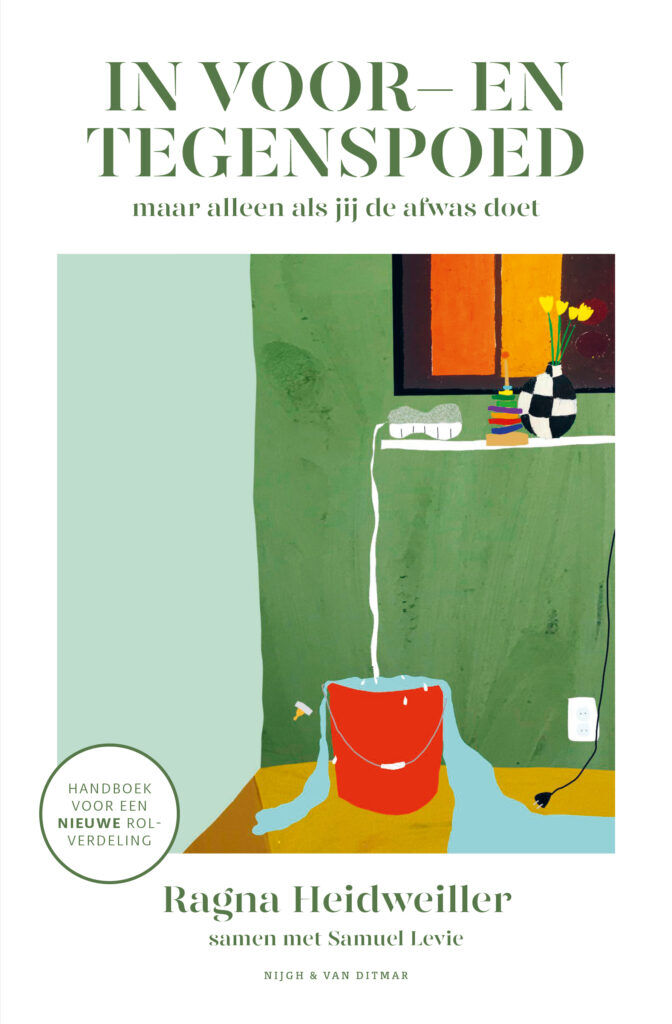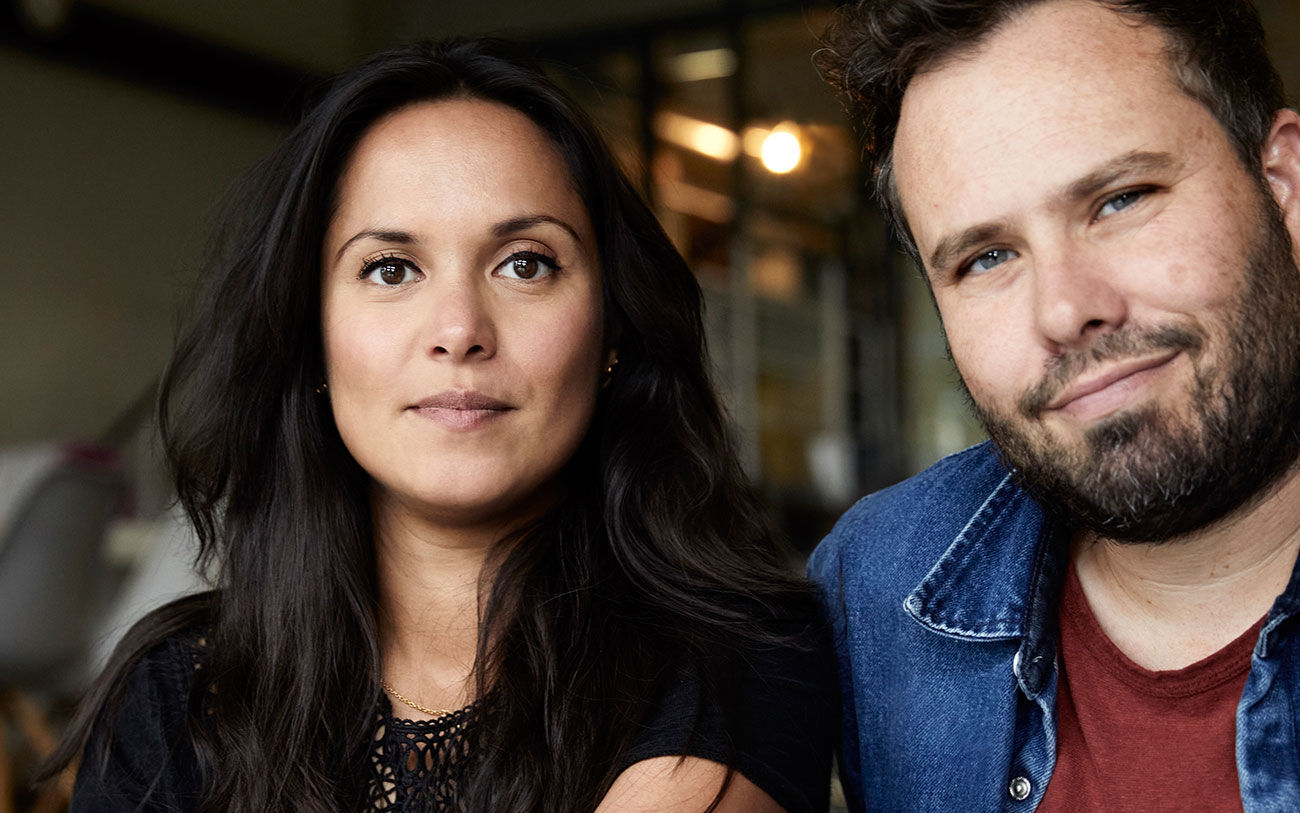‘The rules often fall on women’
Image: Saskia van Osnabruggen and private
Ragna Heidweiller discovered that a balanced distribution when running a family is not self-evident. She and her husband wrote a book about it.
Ragna Heidweiller (38, trainer/coach and author), married to Samuel Levie (38, entrepreneur and writer), mother of Ayla (5) and Mala (3):
“Nine years ago I met Samuel at a friend’s party, but at the time we were both dating others. Months later we met for the first time and the spark really flew.
Casting
Our life together was especially fun in the beginning. We still lived separately, didn’t have to organize anything for each other and didn’t have any daily hassle. Travel a bit, meet up with friends. Everything was cozy. After a year and a half we moved in together in his house in Amsterdam. A big step for me; I was thirty and had had longer relationships, but only shared a household with friends.
Everything was different with Samuel. I wanted children with him and he with me. I soon noticed that I was taking on the arrangements in our new life. Holidays for example; I looked it up and booked it. I thought it was strange that Samuel wanted to give his opinion on that at the very last moment. I arranged, as I now know through advancing insight, the preconditions of life, such as Airbnb’s our house and thinking about friends’ birthdays. I gave up my time for that, but I also wanted to keep control somewhere.
I got that caring from my mother. She always thinks ten steps ahead. Samuel didn’t. Logical, I thought: he was busy with his businesses. I did notice that there was inequality, but it didn’t really bother me.
Primary caregiver
In 2016 Ayla was born, our eldest daughter. I would work one day less, Samuel would do that for six months. Other than that, we didn’t make any real agreements. We never realized that in practice you are working with a child almost 24 hours a day – you only know that when you are in the middle of it.
I found having a child a big claim on my body and mind: super intensive and really not always fun. I wasn’t talking about that, there is still a taboo on it. If Ayla was sick, I handled it. I was the primary caregiver, while we really wanted to do it together.
“When Ayla was sick, I handled it. I was the primary caregiver, while we really wanted to do it together”
We got into more and more arguments—the ones where it took me five questions to say in a full explosion of words what was bothering me: that it all came down to me. Samuel immediately went on the defensive, because it was certainly not the case that he did nothing. He also took Ayla to the shelter, didn’t he? And he gave her a bottle, didn’t he? The conversations, or arguments, led to nothing. We didn’t understand each other. Something fundamental had to change.

Mental burden
I read books and articles about the division of roles between men and women. I listened to podcasts and talked to experts about how to do things differently in my relationship and about “mental burden,” the first real breakthrough to a more balanced distribution.
The term refers to the invisible thinking you do to make life run smoothly. It seems like it’s never done and it is. This causes agitation, restlessness, shortcomings and stress. Often it is the woman who deals with this. Many men execute when they are delegated a task, but at work they don’t wait for a boss to give them an assignment, do they? This was not only an eye-opener for me, but also for Samuel.
“Many men don’t wait at work until a boss gives them an assignment, do they?”
What was also a real eye-opener was the two months that I became ill – just before Mala was born – and Samuel was on his own. Only then did he realize how heavy worrying and how trivial paid work can be.
Read also – Divide tasks fairly with your partner? That’s how you approach it according to an expert >
One step back
Health puts everything in perspective. Samuel became overwrought; the combination of work and worry became too much for him. He had to take a step back from his work for me, Ayla, and our household and find a new balance.
The third turning point was the lockdown in 2020. In the beginning we divided the tasks equally, but where Samuel soon fully focused on saving his companies, I was only concerned with the children and the household.
We weren’t alone; research shows that couples first moved on a more equal footing, but that in many families it was back to the old way after six months, with the woman taking on the children and homeschooling and taking a step back in terms of work. This brought the imbalance back to pre-pandemic levels. To solve this, we opted for a regular babysitter and a more predictable rhythm. Samuel also took on half a care day a week again.
Pay gap
In the Netherlands we still have to deal with a considerable wage gap. In addition, mothers lose an average of almost half their income in the seven years after the birth of their child. And when couples break up, the women in particular are left penniless.
According to figures from Statistics Netherlands, the division of roles in which mothers often work part-time causes financial vulnerability and can lead to child poverty. Working less than a man also has an impact on several levels, including your personal development.
“It is time we became more activist in our own households”
What happened at our house is part of something bigger in my eyes. It’s time we got a little more activist in our own households. ‘A revolution at the kitchen table’, I recently heard someone say, and that is indeed a nice description.
Start the conversation about how you envision the distribution and how best to implement it. You can see that as ‘whining about everyday things’, but you also talk about that in business. With our book I hope to open up the conversation between partners and employers, so that men take on more care tasks and women can pursue their work wishes.”
As a coach, Ragna Heidweiller often focuses on where you come from and where you are going. She herself has Surinamese-Hindu and Dutch roots, while her husband Samuel Levie is English-Dutch-Jewish.

Knowing more? For better or for worse (but only if you do the dishes). Handbook for a new division of rolesyou order here and costs € 27.99.



